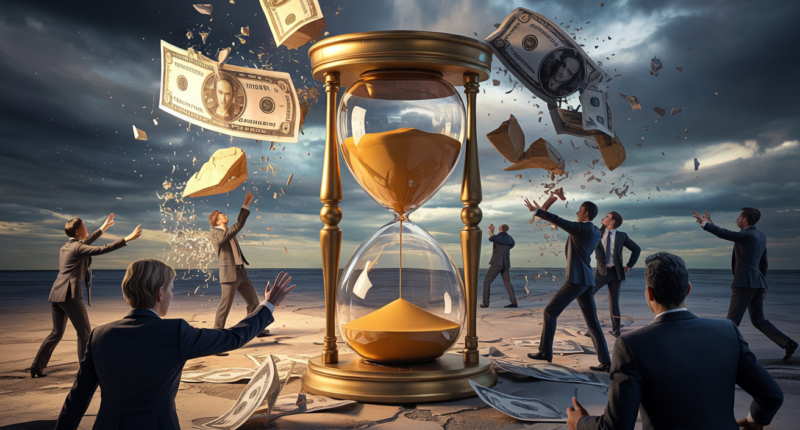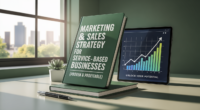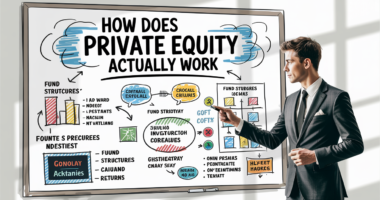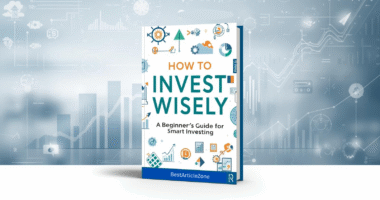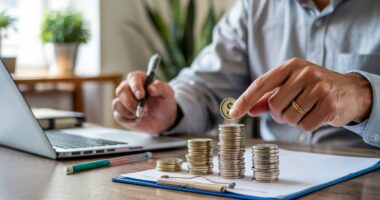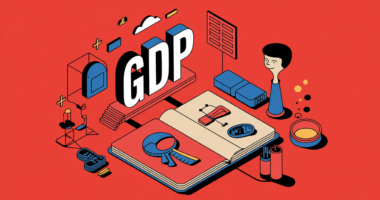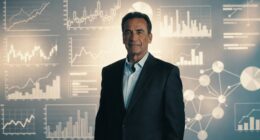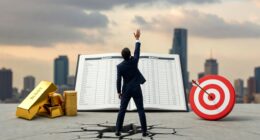These days, many people around the world wonder if a sudden economic collapse or reset is on the horizon. Indeed, major forecasters have trimmed global growth estimates for 2025 (to around 2.8%) and warned that trade wars and uncertainty are to blame. For example, the IMF’s chief economist said we are “entering a new era” where the “global economic system … is being reset.” This suggests big shifts in markets and policies. Moreover, risks like rising debt, inflation, and conflict add to uncertainty. In simple terms, both citizens and investors are bracing for change.
Economic Trends and Uncertainty
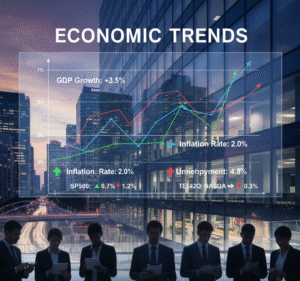
Meanwhile, international agencies are tracking these shifts closely. The IMF now sees slower growth (about 1.8% for the US next year) as trade tensions bite. As a result, markets have grown jittery. Indeed, higher import taxes and policy changes can slow business and cause market swings.
In particular, the recent rise of tariffs and supply chain problems has made forecasting hard. At the same time, higher interest rates to fight inflation are squeezing consumers. Therefore, economists warn the era of steady growth may be ending and volatility could rise.
Climate Change’s Economic Impact
For another factor, climate change is adding economic risks. A recent analysis warns that if warming continues, global output could shrink by half by 2070–2090. Already, climate disasters are costing huge sums. In the US, climate-fueled storms, fires, and floods ran up nearly $1 trillion in damages in just one year (about 3% of GDP)prospect.org. As a result, insurance costs and repairs are crowding out other spending.
Meanwhile, companies and governments worry about disruptions to agriculture, supply chains, and coastal cities. At the same time, aging infrastructure like dams and power grids needs expensive updates to handle extreme weather. All of this means climate change can slow growth and potentially contribute to an economic collapse if not addressed.
Green Growth Opportunities
At the same time, fighting climate change opens growth opportunities. Investing in renewable energy and efficiency creates jobs and revenue. For example, the clean energy industry added 1.5 million jobs worldwide in 2023, surpassing gains in the fossil fuel sector. In fact, it contributed about $320 billion to the global economy that year.
Similarly, many countries have decoupled economic growth from emissions. Therefore, strong climate policy can help avoid economic collapse by spurring innovation and demand. In short, green investment and climate action could drive the next economic upswing.
Opportunities and Policy Responses
Looking ahead, countries and businesses are taking notice. Research suggests countries do not have to choose between ambitious climate policy and strong growthoecd.org. In fact, ambitious plans (like updated climate pledges) can unlock investment, growth, and well-being. For example, stronger carbon pricing can fund clean infrastructure while cutting emissions.
Similarly, improving energy efficiency and public transit can create jobs and reduce costs. In addition, some regions are planning just transitions to support workers and communities. Therefore, smart policies and cooperation could turn this potential reset into an opportunity. In short, while challenges are real, coordinated action on the economy and climate could lead to a stronger future.
